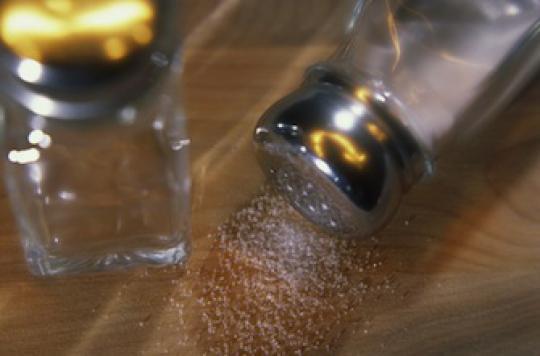Study warns people with multiple sclerosis against excessive salt intake. Indeed, too much salt could promote the development of the disease.

Living a life full of salt is tempting. However, many studies have shown the harmful effects of table salt when consumed in excess. A new study published in the Journal of Neurology, Neurosurgery and Psychiatry warns of the dangers of such an eating habit in people with multiple sclerosis (MS)
MS more active in non-moderate users
A team of Argentine researchers from the Neurological Research Institute of Buenos Aires conducted, in collaboration with researchers from Harvard (United States), a study on 70 people with MS and their salt intake for two years. Scientists first analyzed the presence of sodium in the urine of patients. They then performed an MRI on their brains to understand what impact excess salt could have on the progression of their MS, a neurological disease that progresses in flare-ups.
“Patients who consume a moderate or high amount of salt have a more active disease than those who are less than 2g per day”, observe the researchers at the end of the experiment.
Risks multiplied by 4
The risks of seeing this disease develop in heavy salt consumers are quadrupled above 4.8 g per day. If the researchers specify that it is too early to make official recommendations to these patients, they nevertheless believe that it is better for everyone not to consume more than 6g of salt per day. The World Health Organization recommends not to exceed 5 grams per day.
According to a study published last August in the New Journal England of Medicine1.6 million people die each year from a cardiovascular event, caused by excess salt.
.















